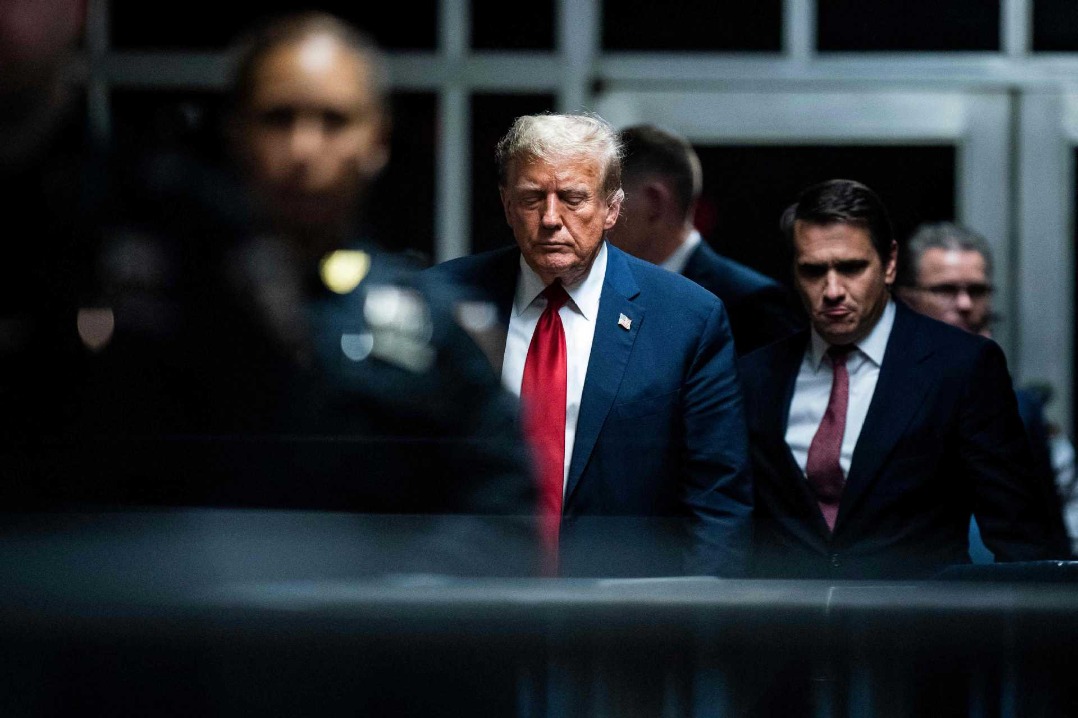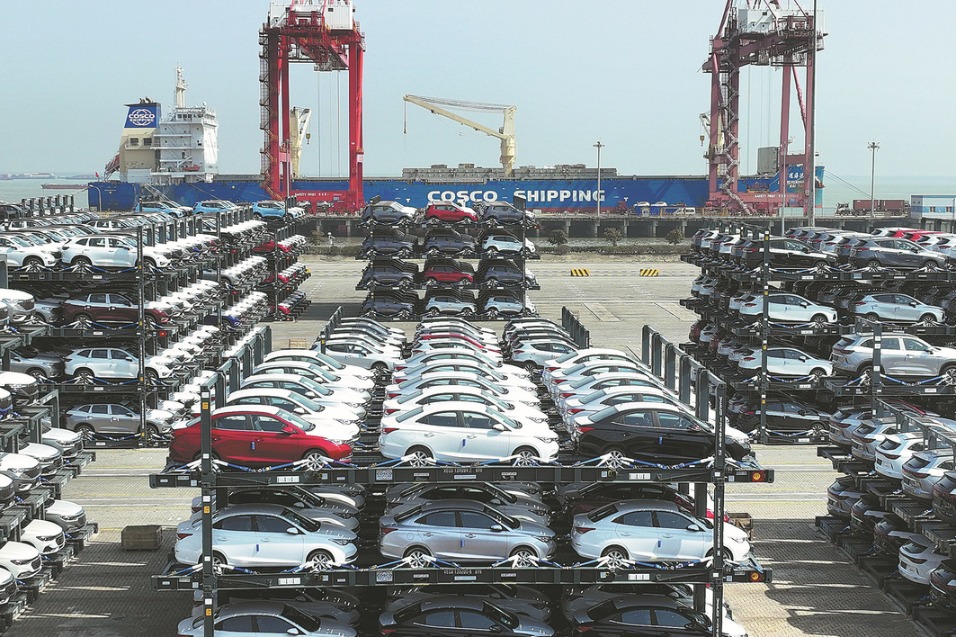Winning trust will be key to EU-China cooperation

In a recent opinion piece, Liu Xiaoming, China's ambassador in London, asked if the United Kingdom will choose win-win cooperation on the Belt and Road Initiative. The same question can be asked of the European Union.
My experience as a former European trade commissioner tells me that, given the current political mood across the continent, Brussels' answer today might be "no." This is despite the fact that Europeans accounted for a third of the political leaders who attended the recent Second Belt and Road Forum for International Cooperation in Beijing.
European parliamentary elections and the forthcoming change of political leadership in EU institutions present an opportunity to reconsider how Brussels and Beijing might engage constructively on trade and investment. Taking the BRI as a specific case study, an EU-China "win-win" situation is possible but will require both Brussels and Beijing to make tough decisions.
Despite Italy's recent embrace of the BRI, the EU's stand toward China has hardened in many ways. The recent entry into force of the EU's investment screening framework, and the strengthening of trade defense and retaliation measures, both reflect growing European anxiety about China's economic advance.
This shift is likely to continue. Polls predict the center-right European People's Party will win the largest number of seats in the European Parliament. Under the banner of "a Europe that protects", defending Europe's position in global value chains is likely to be at the forefront of future EU policy. As a result, a hardening in positions vis-a-vis Chinese trade and investment is possible.
China also faces a big trust deficit with the European public. With a few exceptions, long-term European public opinion toward China has become less favorable. A poll by Pew Research Center, a nonpartisan American fact tank based in Washington, indicates that French and German citizens' favorability of China dropped between 2005 and 2018, falling from 58 percent to 41 percent in France and 46 percent to 39 percent in Germany. This is despite a Chinese investment of $67 billion in the two countries over the same period.
Although Beijing may try to seek soft power via BRI investment, these figures suggest investment alone will not win over European hearts and minds.
Brussels faces an important choice over how the next EU policy cycle frames relations with China. It could choose to focus on the "strategic rivalry" narrative and look to build European champions via protectionism and the exclusion of Chinese capital and technology.
While this may create short-term gains for European industry, it is unlikely to be successful in the long run and would only increase the trust gap between the EU and its second-largest trading partner.
A better approach would be for the EU to double down on cooperation with Beijing in areas of mutual interest. This should include collaboration on meaningful World Trade Organization reforms and helping China formalize and institutionalize its commitment to multilateral institutions.
One way for the EU to feel more comfortable about an expanding China is to forge a viable and sustainable blocwide policy toward BRI investment. As German Economy Minister Peter Altmaier suggested at the recent BRI forum in Beijing, one approach would be for the EU to participate collectively in the BRI. Getting France, Germany and the other nations to agree on a single BRI position would be an extremely difficult task. That does not mean it is not worth pursuing.
Beijing has its own hard work to do if it wants to counter growing skepticism in Europe. Brussels has encouraged Beijing to improve transparency and governance in the process of awarding BRI contracts, and to level the playing field for investors in China, including through reform of State-owned enterprises. Brussels will also be reassured if Beijing can demonstrate it is interested in engaging Europe as a whole, not just select parts - for example by taking up Altmaier's suggestion.
Beyond rhetoric, Beijing should take the upcoming reset in EU institutions as an opportunity to show demonstrable commitment to addressing EU concerns.
A "win-win" is possible for EU-China trade and investment, but repairing the trust deficit is key to moving forward constructively.
The author is chairman of Global Counsel and president of the Great Britain China Centre. He is a former European trade commissioner and British First Secretary of State. The views do not necessarily reflect those of China Daily.



































